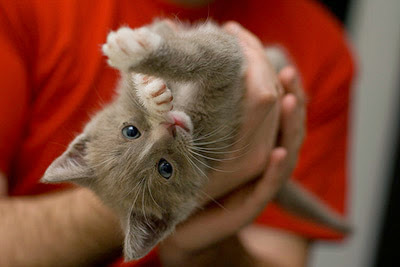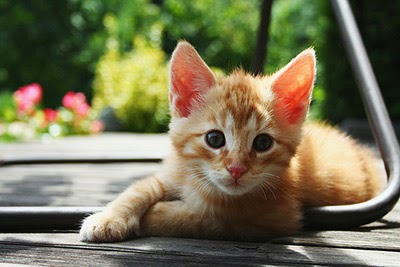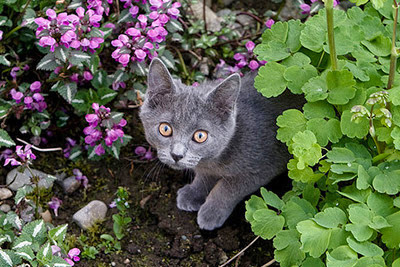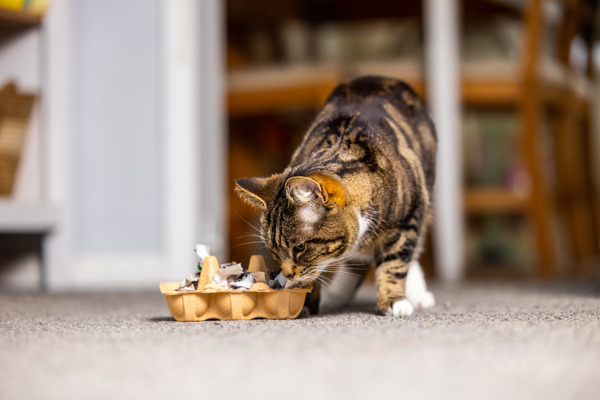In this kitten behaviour post, vet Vanessa discusses the ‘socialisation period’ of kittens and the causes of kitten suckling.
Last week vet Vanessa Howie hosted a live Q&A with our Facebook supporters. Vanessa took questions on kitten care – here are just some of them:
Do you have any tips on how to stop my nine-month-old kitten from biting?
The experiences kittens have within their first two months of life are important in influencing their behaviour right into and through adulthood. During this early period, often known as the ‘socialisation period’, kittens learn what aspects of their environment are ‘normal’ and ‘safe’ so that everything that they come across during this period is likely to be accepted as something that is ‘okay’ later in life.
I would recommend finding out more about this by having a read of this article on kitten socialisation from our official supporter magazine The Cat. You may also find this article about aggression in cats from International Cat Care (ICC) helpful to read.

Photo by Pinguino K via flickr / Creative Commons
Why do kittens suckle?
My kitten keeps sucking my ears and face. Why is he doing that?
Kittens may do this as a way of bonding or seeking reassurance as this is a behaviour they will have learnt when suckling from their mother. It is a common behaviour kittens may carry through into their adult life.
How often should kittens be fed?
Do kittens need a certain number of pouches of wet food a day? Mine only eats one but she has kitten biscuits available all day.
Kittens under six months old should be fed at least three times a day, to help regulate their blood sugar at this age.
The exact amounts required at each feed is something you should check with the manufacturer, as this will differ depending on the type of food fed. Perhaps there is a feeding guideline on the packet?
We would recommend your kitten gets a good commercial kitten food to ensure your kitten's nutritional needs are met. Their food should be checked and replaced at least four times daily.

Photo by Mathias Erhart via flickr / Creative Commons
Why does my seven-month-old kitten try to nuzzle for milk out of my five-year-old cat?
This is a common kitten behaviour that many cats carry over into their adult lives. It is a way of seeking reassurance and releasing calming hormones that may make your kitten feel more relaxed, like small children when sucking a soother for comfort.
My kittens' claws are sharp, what should I do?
My kitten is just over four months old. She’s booked in at the vets tomorrow for having her claws clipped for the third time. She has got a scratch post and uses it daily but her claws grow really quickly. Her claws are cutting my hands, what can I do?
Cats use scratching posts to remove old layers of claw and to help improve the health and sharpness of their claws. Sharp claws will help when climbing trees to escape predators for example. Avoid playing with your kitten using your hands and always use a toy to redirect her attention away from your fingers. Clipping your kitten’s claws every four to six weeks may help but we recommend only clipping the claws on the front paws.

Photo by Bill Stilwell via flickr / Creative Commons
Why does my kitten have 'crazy' moments?
My eight-month-old female kitten goes crazy now and again, running around like mad. She bites things and talks a lot. Is this a sign that she is on heat? Is it best to get her spayed?
We recommend kittens are neutered at four months old ideally to prevent any unwanted litters and to improve the health and welfare of your kitten (read more on our Neutering page). Cats come into heat around every month. It sounds like your kitten is being playful rather than being in heat.
Please note that we are unable to give specific advice on your cat's health or any change in behaviour observed. For medical problems consult your vet who will have access to your cat’s medical history and will be able to examine them.
You’ll find more information about cat and kitten care and behaviour here.
Fancy asking one of our feline experts a cat care question? Don’t miss the next live Facebook Q&As: Behaviour Manager Nicky Trevorrow will be answering questions on cats’ behaviour on 26 February; Vanessa Howie, Field Vet Officer, will take more veterinary questions on 12 March; while Jane Clements, our Neutering Manager, will be online on 7 May. Each Q&A takes place at 2pm for one hour.


